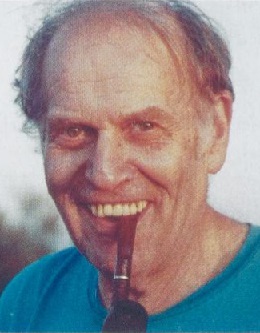Sidney Morgenbesser facts for kids
Quick facts for kids
Sidney Morgenbesser
|
|
|---|---|
 |
|
| Born | September 22, 1921 New York City, U.S.
|
| Died | August 1, 2004 (aged 82) New York City, U.S.
|
| Education | University of Pennsylvania (M.A. & Ph.D.) |
| Alma mater |
|
| Occupation | Philosopher and academic |
| Employer | Columbia University |
Sidney Morgenbesser (born September 22, 1921 – died August 1, 2004) was an American philosopher and a professor at Columbia University. He was well-known for his clever and funny philosophical sayings. Even though he didn't write many books, many people remember him for his sharp wit.
Contents
About Sidney Morgenbesser
Sidney Morgenbesser was a brilliant thinker. He taught many students and was famous for his smart and funny comments.
His Early Life and Education
Sidney Morgenbesser was born in New York City on September 22, 1921. He grew up in a part of Manhattan called the Lower East Side.
He studied philosophy at the City College of New York. He also studied to become a rabbi at the Jewish Theological Seminary of America. Later, he went to the University of Pennsylvania for more advanced studies. He earned his Master's degree (M.A.) in 1950. Then, he got his PhD in 1956. His PhD paper was about "Theories And Schemata In The Social Sciences." His first job teaching philosophy was also at the University of Pennsylvania.
A Professor at Columbia University
Morgenbesser taught at Swarthmore College and The New School for Social Research. In 1954, he started teaching at Columbia University. He was given a special award called a Guggenheim Fellowship in 1963. By 1966, he became a full professor at Columbia.
He was also a visiting professor at the Rockefeller University from 1967 to 1968. In 1975, he was named the John Dewey Professor of Philosophy at Columbia. He held this important position until he retired.
Morgenbesser was an expert in several areas of philosophy. These included the philosophy of social science, political philosophy, and epistemology (the study of knowledge). He also studied the history of American Pragmatism, a way of thinking that focuses on practical results. He helped start a group called the Society for Philosophy and Public Affairs. He worked with other famous thinkers like G.A. Cohen and Thomas Nagel.
In 1987, he was interviewed by Bryan Magee about American Pragmatism. You can still find this interview online today. Sidney Morgenbesser passed away on August 1, 2004. He was 82 years old. He died in Manhattan at St. Luke's-Roosevelt Hospital Center.
His Famous Wit and Teaching
Morgenbesser was best known for his clever and funny remarks. These jokes often helped people understand deep philosophical ideas. The New York Times Magazine even called him the "Sidewalk Socrates." Socrates was a famous ancient Greek philosopher.
Here are a couple of stories about his wit:
- Once, a philosopher named J. L. Austin said that a "double negative" (like "not unlike") can mean something positive. But he claimed no language has a "double positive" that means something negative. Morgenbesser quickly replied, "Yeah, yeah." This was a funny way to use a double positive ("yeah, yeah") to mean "no" or "I disagree."
- Another time, a student asked him if he agreed with Chairman Mao. Mao had suggested that a statement could be both true and false at the same time. Morgenbesser thought for a moment and then said, "Well, I do and I don't." This was a clever way to show the complexity of the idea.
Morgenbesser didn't publish many books. He also didn't start his own school of thought. But he was highly respected for his amazing intelligence and strong moral beliefs. He was a very influential teacher. Many of his former students became famous philosophers themselves. Some of them include Jerry Fodor, Robert Nozick, and Hilary Putnam.
In 1967, Morgenbesser signed a letter. In this letter, he said he would refuse to pay taxes. This was a way to protest the U.S. war in Vietnam. He also encouraged others to do the same.
 | William M. Jackson |
 | Juan E. Gilbert |
 | Neil deGrasse Tyson |

